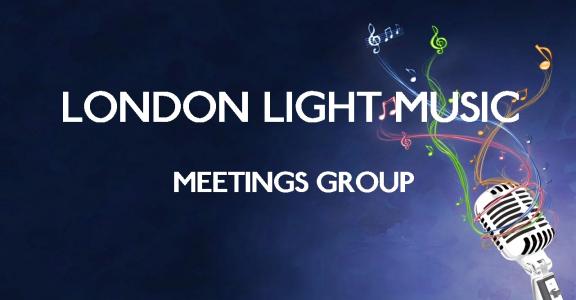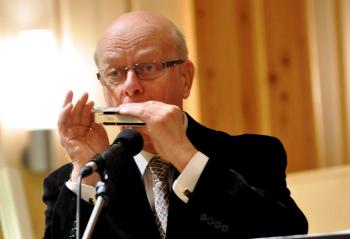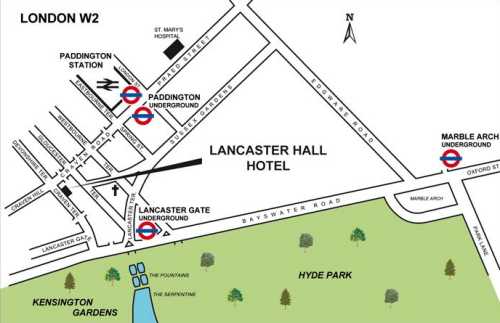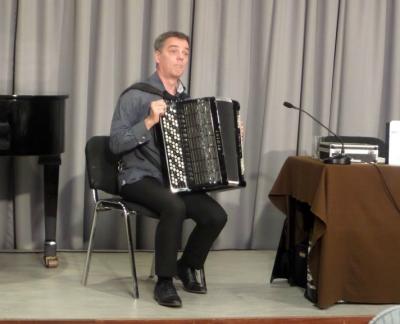During the course of my travels over the light music segment of the music repertoire, through various selections, some familiar, others less so, I came upon a rather unique situation upon revisiting a piece that I've known for the longest time.
That piece is David Rose's "Gay Spirits," which was one of the earliest light music selections that I acquainted myself with, and incidentally, even before encountering the composer's "Holiday for Strings" which would inevitably remind me of "Gay Spirits," as these two pieces are remarkably similar in their bearings. But I didn't know the name of the selection due to its manner of usage as accompanying music in what they refer to in the UK as a test card and in the USA as a test pattern. As hours of daily broadcasting have considerably expanded over the years, one is much less likely to encounter these intervals between live broadcasts, at least here in the USA. But due to the circumstances of my initial exposure to this piece, I was not to obtain the much desired particulars about it - the title and composer - until a few more years had passed. And this latter took place on a radio show entitled, "The Charlie Stark Music Shop" which I had occasion to refer to when commenting on Bob Walton's analysis of "Frenesi."
In one of my earliest articles on this site, "Differing Versions of the Same Set Light Music Selections," I compared differing versions of the same pieces as presented by different conductors. In some cases, the versions were identical though by diverse conductors who adopted different tempos or emphasized different facets of the piece. In others, the orchestration was noticeably different or perhaps the piece was in some manner abridged or extended, either by revision or by the necessity of fitting the selection on a single 78/45 RPM side. But in all these cases, the piece still remained essentially recognizable and thus easily identifiable as such.
In the case of "Gay Spirits" I have noted a situation that is totally different from anything I referred to above, as here we have a transmogrification of a piece that is utterly different from the original presentation of it, though still bearing the same title. It uses only one small feature of the original and then proceeds along quite its own lines. Those who are expecting to hear an updated version of the original will likely emerge from it quite disappointed, at least if they have a special affection for the original version, as I have.
To be sure, the so-called original version I refer to that came out on disc in the early 1950s was preceded by an earlier version, evidenced by comparing this with the piano sheet music publication of the piece. In this latter, the introduction to the main idea is slightly longer by a few bars and the reprise section is given in its entirety. More than likely, Mr. Rose felt compelled to make these very slight abridgements out of concern whether the complete version could be handily fit on the side of a single disc.
In 1964, in the process of scoring for a film entitled "Quick before it Melts," he used a small portion of this material in this film, and subsequently, in a desire to preserve some of this on disc, created a boiled down version of it, not necessarily in the same order as appearing in the film, and not necessarily in the identical arrangement. This result was released on disc under the same title, "Gay Spirits," as the one that appeared years before, although to all intents and purposes this was an entirely different piece and should clearly not have borne the same title as the earlier one.
Upon listening to it, I heard a rather hard introductory gesture which eventually leads into the lyrical middle section of the earlier piece, in the version that it first appears (with strings) but not identically - I have noted some very slight changes in the melody. This leads to its own middle section - somewhat engaging as to specific material but still difficult for me to relate to the other main idea that was formerly the middle section.
Eventually, this is reprised, and at the end of the statement there is a move that almost suggests that we will next hear the flute version of this melody as in the original, but this does not occur; very soon after, the piece abruptly ends.
One may regard it as a reminiscence of a moment from the film, as obviously Mr. Rose desired to preserve it for some reason, but as an independent movement, for me it simply does not work, although I have already encountered opinions to the contrary, favoring this piece over the original "Gay Spirits." In any event, I would invite debate on this issue.
I should point out that the sister piece, the far better known "Holiday for Strings," has similarly been knocked around for all sorts of usage - I recently watched a choreographic sequence with Cyd Charisse using a version that had a few deviations - with such frequent re-usage, this is bound to occur. But I have encountered nothing with this piece such as I have with "Gay Spirits" and I would hope that the newer piece bearing that title but sharing little in common will never come to supplant the earlier one which I continue to regard as one of David Rose's most quintessential creations.
And I will add that in 1955, Mr. Rose made some changes in regard to "Holiday for Strings," regarding the reprise which was somewhat expanded, and a completely different ending, featuring a slight allusion to the middle section idea. It is still recognizably the same piece, with none of the total overhaul that occurred with "Gay Spirits." But in general, I prefer the more straightforward reprise of the earlier version.
William Zucker





